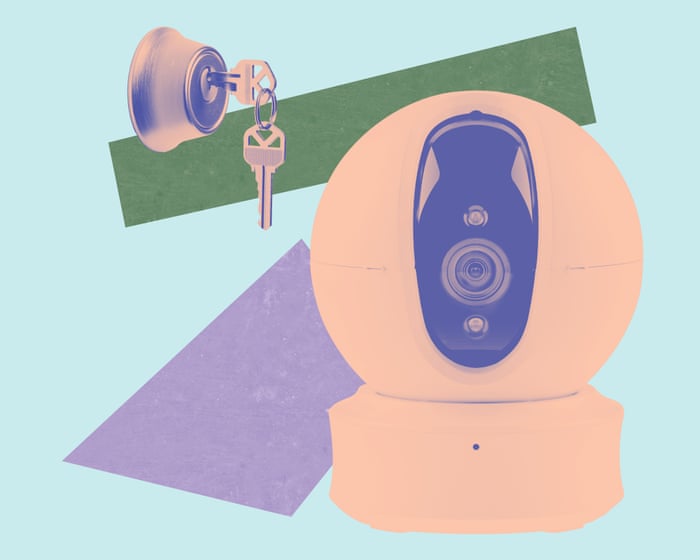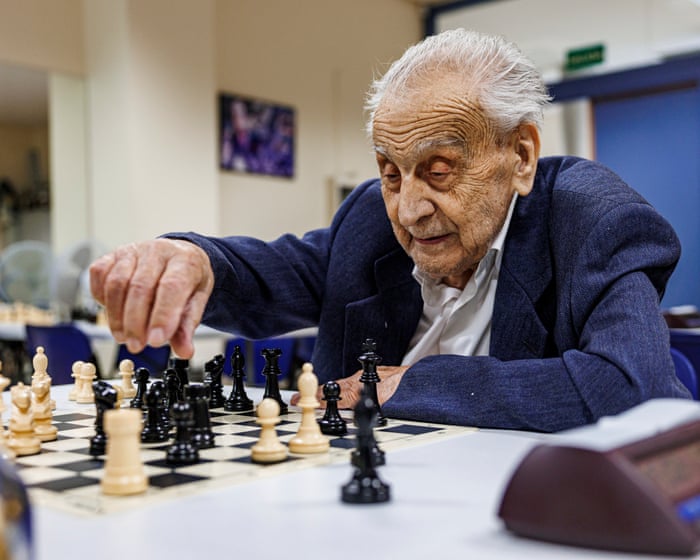Whether you’re going on vacation, moving to a new home, or have simply become a bit too relaxed, there are many simple steps you can take to make your home safer. Security experts share their top tips to help you avoid a break-in.
Be more secure than your neighbor
“Thieves are usually opportunists,” says Anthony Neary, managing director of safe.co.uk. “If they’re on a street looking at different houses, they’ll target the one that seems least secure. If you have outdoor lights and your neighbor doesn’t, they’ll go for the house without lights.”
Install security lighting
Evenings are a common time for burglaries, Neary notes. “Around September and October, when it gets dark earlier, the risk increases because thieves can hide in the darkness.” Security lights are an affordable deterrent: “A thief won’t want to draw attention while trying to break in. Lights turning on do exactly that.”
Ellie Morrison, senior category manager for electrical, lighting, and smart home products at Toolstation, adds: “One of our top-selling smart items is a security floodlight that also records. Placing these at the front and back of your house, with the added ability to record anyone on your property, is one of the strongest deterrents.”
Keep tools out of sight
“Make sure tools or any equipment that could help someone break in aren’t easily accessible,” Neary advises. “It might sound obvious, but many people have garden sheds full of tools that burglars can use. Shed security is often overlooked, with many only having a basic lock. Strengthening it can make a big difference.” He explains that thieves may check sheds not to steal items like power tools or lawnmowers, but to find tools they can use to break into your home without having to carry their own.
Upgrade your locks
“Locks are one of the easiest things to replace,” says DIY expert and presenter Wayne Perrey. “If you’ve moved into a new home or lost your keys, it’s simple to change them. If you can open the door, you’ll usually find two screws on the edge. Unscrew them to remove the lock barrel, then take it to a hardware store to find an exact match with new keys.” He also recommends ensuring your lock meets insurance standards, such as using a five-lever mortice lock.
Trim hedges and bushes
“Hedges can provide hiding spots,” Neary points out. “While people value them for privacy, creating hidden corners in your garden isn’t a good idea. Keep your garden well-trimmed.” Perrey suggests planting thorny shrubs like hawthorn along boundaries: “Spiky plants make it harder for intruders to climb over fences without getting scratched.”
Consider smart security
Smart doorbells and cameras can help deter intruders, but if not set up properly, they might cause unnecessary anxiety. Choose devices that suit your needs and ensure they’re correctly installed for peace of mind.Smart security lets you monitor your property at almost any time, according to Neary. “You could be on holiday abroad and still easily check what’s going on.”
Morrison notes that smart doorbells now make up 80% of the doorbell market. “Many cameras offer motion detection, so you can stay aware. If something happens—like someone hitting your gate—you’ll have a record to support any insurance claims. You can also add door and window sensors that trigger recordings or alarms, warning intruders they’re being watched or sounding a loud alert to call for help. You’ll get a push notification too. It’s about both staying informed and deterring potential intruders.”
The downside, Neary points out, is that this constant access can lead to over-worrying when you’re away. “As technology gets better, we’re more informed all the time, and security is part of that. If you’re at the beach and your phone alerts you, it’s usually nothing—maybe a cat—but not knowing can raise anxiety. That’s just modern life.”
Perrey advises careful placement of cameras and sensors. He shares that his indoor Ring alarm used to trigger frequently, causing panic, until he realized it was aimed where strong sunlight came through. “When a cloud passed quickly, it thought someone was walking into the room.”
Alarm systems are now simple to install yourself and serve as a strong deterrent, says Neary. “They’re wireless and battery-powered—just remember to change the batteries. An external siren is a great deterrent.” As for fake alarm boxes, he adds, “Anything that creates a deterrent helps, even if it’s not functional.”
Morrison disagrees, saying, “You get what you pay for. Professional burglars can likely tell which alarms are fake. Traditional alarm boxes aren’t as common now anyway—it’s more about discreet cameras that catch people in the act. Floodlights do a similar job as fake alarms.”
Building good relationships with neighbors is valuable, Neary suggests. “Having people watch the street or neighborhood is fantastic. Neighborhood Watch is still around, though it’s fading with the rise of smart security, but it’s a good idea.”
When you’re away, make your home look occupied. Neary recommends putting bins out—easier if you’re friendly with neighbors—and using TV simulators, which are inexpensive timers that mimic a flickering TV light in the evening. Avoid letting mail pile up, as it signals no one’s home.
Morrison uses smart lighting indoors when on holiday, set to a randomized schedule. “Lights turn on to make it seem like someone’s home, unlike old timers that switch on predictably, which can hint that the house is empty.”At home, should you leave your curtains open or closed? Morrison suggests leaving them halfway down and using lights that turn on at different times throughout the day. Perrey advises against closing them completely, as it signals that you’re away. Neary notes that while curtain timers might exist, they aren’t easy to find. If possible, have someone close your curtains at night.
Avoid posting about your vacation on social media until you return. Neary emphasizes that sharing holiday plans online essentially provides a roadmap for burglars, showing who is home and who isn’t.
Consider getting a dog—or even just a “beware of the dog” sign—as a deterrent. Neary points out that homes without dogs are often targeted first. Even fake signage can help, and it’s easier than owning a real dog. However, Perrey cautions that such signs might imply a lack of an alarm system, since dogs could set it off. He also mentions that modern security systems can be adjusted to ignore pets. Neary adds that having a trusted housesitter to care for a dog can be one of the best ways to keep your home secure.
Use key safes wisely. Perrey recommends them as a better alternative to hiding keys under mats or pots, but advises keeping the safe out of sight. Neary suggests choosing a police-approved model, as some are highly secure, while cheaper versions can be easily broken into.
Ensure windows are secure. Beyond locking them, Perrey advises checking double-glazed windows to confirm the beading—which holds the glass in place—is on the inside. If it’s on the outside, intruders could remove it and take the glass out to enter.
Always remember to lock up. Neary notes that simple oversights, like leaving doors unlocked or windows open, make homes easy targets. Former burglars have told him that many people take no precautions at all, sometimes even leaving ladders outside. Awareness of security is crucial.
Finally, if you suspect a burglary, Neary advises staying out of the way and calling the police immediately. Confronting an intruder could lead to serious harm.
Frequently Asked Questions
Of course Here is a list of helpful FAQs about getting a dog and keeping your home safe
General Getting a Dog FAQs
Q Im thinking of getting a dog Where do I even start
A Start by researching breeds or shelter dogs that match your lifestyle Then puppyproof your home before bringing them home
Q What are the most important things to buy before bringing a dog home
A Essentials include a crate or bed food and water bowls highquality food a collar with ID tags a leash and safe chew toys
Q Should I get a puppy or an adult dog
A Puppies require immense time for training and socialization Adult dogs often have established personalities and may already be housetrained making them a great choice for firsttime owners
Home Safety DogProofing FAQs
Q What does dogproofing my home actually mean
A It means looking at your home from a dogs eye level and removing or securing anything they could chew swallow or knock over This includes electrical cords toxic plants and small objects
Q What common household items are most dangerous for a new dog
A Human foods cleaning supplies medications certain houseplants and loose electrical cords are top hazards
Q Are there any specific rooms I should focus on securing
A The kitchen and bathroom are critical as they often contain chemicals and foods Also secure trash cans in every room as they are very tempting
Q My dog keeps getting into the kitchen trash What can I do
A Use a trash can with a secure locking lid or store it inside a latched cabinet This is a common issue so prevention is key
Q How can I keep my dog safe when Im not home
A Using a crate or confining them to a single wellproofed room is the safest way to prevent accidents and ingestion of dangerous items
Advanced Behavioral FAQs
Q My dog is anxious and destructive when left alone How can I help



